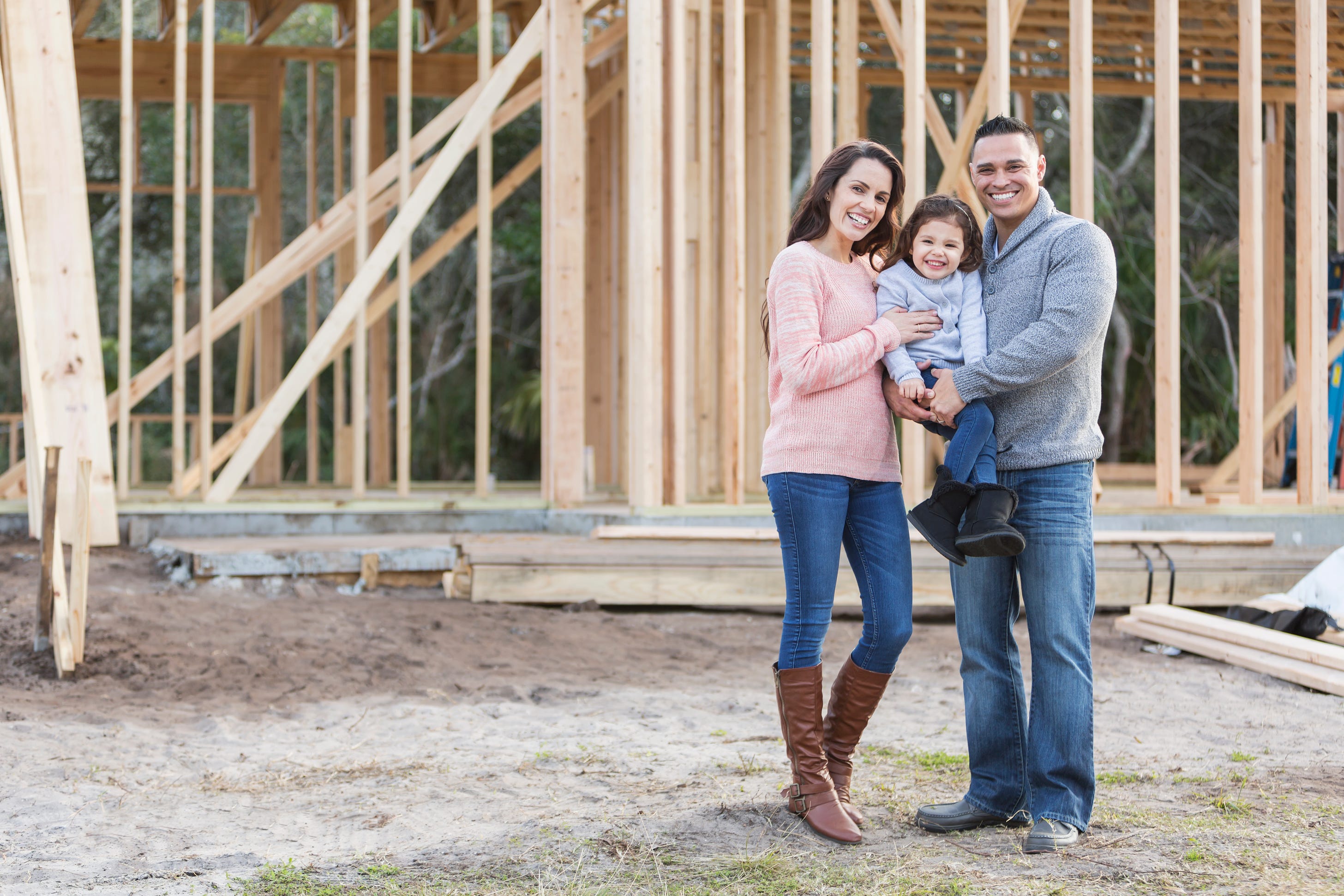|
 |
Catholics Should Be Pro-Housing
A pro-life and pro-family position entails valuing actual people and their needs
There is an odd phenomenon in American politics that divorces “urbanist” issues such as housing, public transportation and the general thriving of cities from “pro-life” and “pro-family” concerns: The former are seen as belonging to the left, the latter as belonging to the right. And yet housing affordability, substandard public transit and car crashes are all things that directly concern the welfare of children and families.
Some pro-lifers view this sort of assertion with suspicion. They anticipate an argument intending to distract them from their opposition to abortion. It doesn’t help that many urbanists are progressives and pro-choicers who approach housing advocacy from an explicitly progressive worldview. If you follow the discourse on housing shortages, you may have seen the argument that blue states and cities need to build more housing so women can access abortion. To each their own, I suppose.
I recently published a piece in the magazine America: A Jesuit Review in which I argue that Catholics who are pro-life and pro-family should also generally be pro-housing or “YIMBY.” YIMBY stands for “yes in my backyard”—the rejoinder to NIMBY’s “not in my backyard.” Here’s the bumper sticker version of my article: “When babies grow up, they become neighbors.”
Valuing People
More than once I’ve heard conservative Catholics, and conservatives in general, say something like this: “The left hates families and babies. Why should we trust anything the left champions?” (To be clear, I do not subscribe to this view.) It’s ironic that the people who claim to care the most about the family in the abstract so frequently ignore the on-the-ground issues that benefit families.
A Catholic attitude to housing should begin, as all Catholic teaching does, with the fundamental principle that people have inherent dignity. From this principle might follow all the socially conservative Catholic positions, but what also follows is valuing actual people and their needs above our preferences for the built environment.
This is not specifically about abortion. It’s about what it actually means to value married couples, babies and families. These people are not intellectual abstractions: They are inhabitants of the real world, and the real world can either harm them or aid them.
Hardship Does Not Equal Virtue
There is a progressive idea that everything comes down to circumstances or structures—that the choices people make are really, in some sense, not choices at all. Of course this is simplistic. But there is a conservative counterpart to this: an attitude that valorizes initiative and responsibility and work ethic to the point that we sometimes sound as though we think decisions are made in a vacuum.
You’ll sometimes get the sense that conservatives feel that a good choice is without merit if it isn’t completely self-determined—that creating frameworks or incentives that prompt people to do the “right” or “virtuous” thing is a kind of cheating, a shortcutting of individual responsibility. Taken to its logical conclusion, this view implies that human decision-makers have no real motivations at all; that virtue and responsibility exist in a vacuum. Sometimes, it seems, conservatives have trouble distinguishing between solving problems and dispensing handouts.
One of the most striking statements of this view was made by conservative-libertarian intellectual Matthew Crawford in his defense of the car, “Why We Drive” (which I reviewed in 2021). Crawford glosses over the ill effects of the car—its dangers to pedestrians and its own occupants, its effects on land use and housing—by casting these developments as the costs of freedom and individualism. In my review, I critique this notion of hardship-as-virtue:
Crossing the street, or driving it, should not entail a meditation on one’s mortality. Crawford does something that right-leaning intellectuals do often, and almost never notice. They find justifications for hardship or risk, and praise the character that can face them, without distinguishing between natural or inherent risks and manmade ones. They treat policy failures, or problems easily remediated by policy, as opportunities to build character. They betray a touch of self-loathing masquerading as self-reliance. They implicitly view solving problems through policy as cheating one’s way through a life that is supposed to be difficult.
There is much of this attitude in the conservative opposition to housing and zoning reform. This opposition strikes me as unchristian: a resistance to the “entitlement attitude” so strong that it begins to see even teaching a man to fish as a handout. Rather than valorizing overcoming adversity, it valorizes adversity itself and views the use of politics to lessen adversity as an illegitimate endeavor.
Building Communities That Foster Family Life
There is a nonzero number of Christian and Catholic conservatives who would like more young people to marry and have children but who see no relationship between that goal and driving down the cost of housing. Or they see expressing concern over housing costs as the equivalent of whining over the price of lobster or a yacht. In reality, a pro-housing agenda is not about “giving people houses who can’t afford them” or devaluing the work of those who are already homeowners. It is about building stronger, thicker communities by lowering barriers to family formation and homeownership.
Ultimately, it is about building communities within which it would be easier to live out the kind of family life that conservatives claim to value. I wrote about this previously:
At least in our country’s higher-growth, most housing-deficient regions, it may be necessary to choose between the needs of people and our preferences for the built environment around us. We might have an image of what a “family-friendly neighborhood” looks like: detached houses with yards, for example. But a family-friendly neighborhood could instead be a neighborhood that the average family can afford, and it may look different than our ideal. It may be the case that putting the human person and the family first requires letting go of certain aesthetic preferences.
This is neither a progressive observation nor a conservative one—nor is it a Catholic one. It is simply a description of what happens as a human settlement grows to the point where it is simply not possible for every family or household to live in a detached house on a small plot of land.
One possible response to this reality is to simply deny it, to sprawl out endlessly and to treat long commutes and physical separation and isolation as facts of adult life. Another is to reverse natural urban growth by opposing the people who will ultimately need housing: NIMBYism as Malthusianism.
But “there are too many people” is a sentiment closed off to any Christian—indeed, to any decent human being. The Catholic response, and the response in sync with reality, is to permit cities and neighborhoods to grow as they naturally would and naturally did until we prohibited this growth.
Making the Past Present
Purely by way of analogy—not in a truly mystic sense—one can see urban growth as a sort of “anamnesis,” referring to the Catholic doctrine according to which the Mass and the Eucharist are understood to make Christ’s once-for-all sacrifice present right now. Catholic theology understands the Mass and the Eucharist not to repeat or contradict the Last Supper or the Cross but to actually be the Last Supper and the Cross.
The project of building up a place over time is a kind of stepping into the past or making the past present. A new building here, a demolition there; an alteration here and another alteration there—all are part of one long, unfolding project into which we are invited to participate. A genuine city, town or neighborhood is not a product. It’s a living thing that changes and grows and outlives its inhabitants but remains in some sense the same. A new building in an old city does not contradict the character of the city any more than the celebration of Holy Communion contradicts the Last Supper.
If we could ask our city fathers what they envisioned for our cities, surely we would not hear that they wanted their projects to be stymied by reams of regulation or embalmed under the euphemism of “historic preservation.” Our forebears must have understood that if our places are to keep their inward substance, their outward forms must change. As we work to implement these changes wisely, I believe we can imagine our predecessors saying, “Do this in memory of me.”
You’re currently a free subscriber to Discourse .

